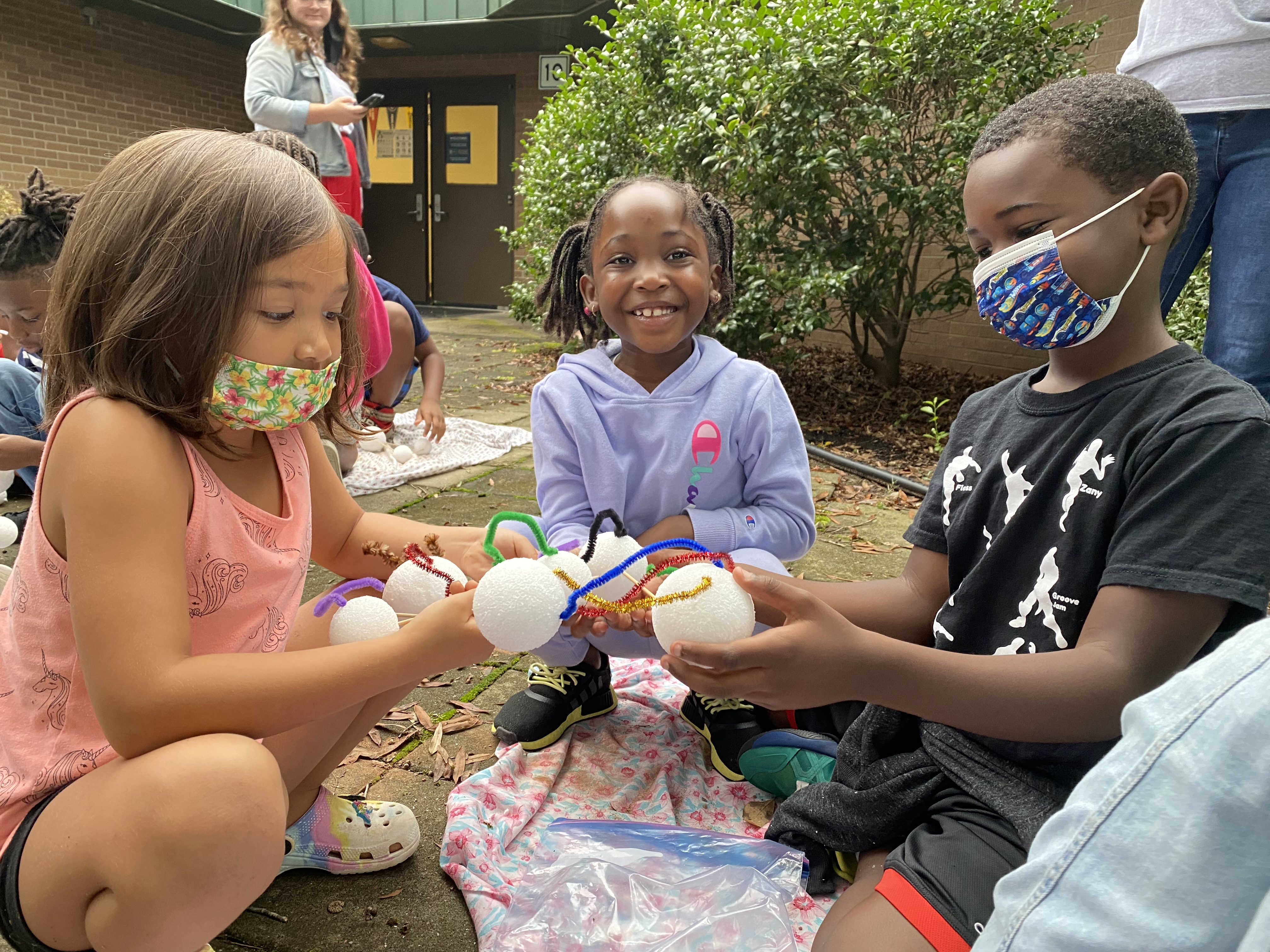
Columbia, SC—Conservation educators from the Richland Soil and Water Conservation District (RSWCD) are available to present classroom conservation programs for schools and youth groups on a limited basis. All programs are correlated with SC science academic standards and tailored to each grade level.
Guidelines
- Typically, programs are presented to one class at a time (max. 25 students) with up to three programs/classes at the same school in one day.
- Educators prefer to lead programs out-of-doors if outdoor learning space is available.
- Most programs require 45-60 minutes to present.
- Programs are available on a first-come, first-served basis, and the educators’ calendars are expected to fill quickly.
- There is no fee for programs.
Available Programs
The following programs are available in the 2022-2023 school year. Each topic has several extension activities which presenters can tailor to grade level academic standards.
Watershed Explorer
This program begins with a demonstration and interactive game to introduce or review the water cycle and water as a natural resource. Then, students explore the concept of watersheds, pollution, and conservation with an Enviroscape. Important concepts covered include:
- how water changes as it moves between the atmosphere and Earth’s surface during each phase of the water cycle;
- what a watershed is, and how water shapes the landscape;
- why water is an important natural resource;
- how human activities affect watersheds and water quality through conservation practices (positive) and pollution (negative).
Supersoil: Soil Science 101
This fast-paced program includes several models, demonstrations, and activities to help students understand:
- why soil is an important natural resource;
- properties of abiotic and biotic materials that make up soil (rocks, sand, silt, clay, water, organic matter, humus, etc.);
- processes of weathering, erosion, and deposition;
- how humans can help conserve soil through conservation practices such as composting, erosion control, cover cropping, and no-till farm management.
Where Would We BEE Without Pollinators?
Who are the pollinators, what is their relationship with plants, and why are they important to humans and wildlife? This program covers the following concepts:
- characteristics of organisms that serve as pollinators;
- why some plants need animal pollinators;
- how human actions affect pollinators;
- conservation practices that can help protect pollinators.
Wonderful Worms: Vermicomposting in the Classroom
During this hands-on program, Eisenia foetida—the red wiggler earthworm—will be used as a model organism to help students learn about:
How to Schedule
For more information, or to schedule a program for your classroom or student group, contact Chanda Cooper at cooper.chanda@richlandcountysc.gov.
# # #
Conservation Districts are political subdivisions of state government under the local direction of five-member Boards of Commissioners. In South Carolina, Conservation District boundaries conform to County boundaries. The Richland Soil and Water Conservation District promotes the wise use and care of natural resources for long-term sustainability.
Contact
Richland Soil and Water Conservation District
2020 Hampton Street, Room 3063A
Columbia, SC 29204
Phone (803) 576-2080
Fax (803) 576-2088
E-mail soilandwater@richlandcountysc.gov
Facebook www.facebook.com/rswcd